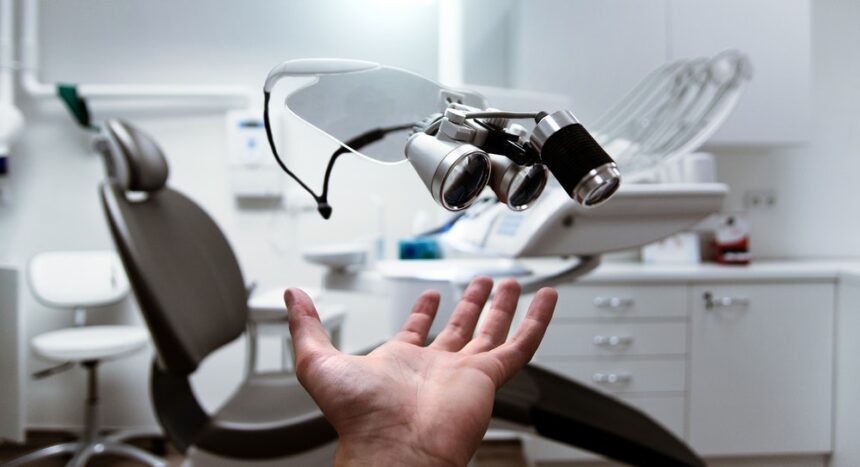The majority of primary care physicians rarely give any thought to vision. At first this may seem strange, but when you consider that optometry isn’t a traditional medical specialty (as opposed to ophthalmology), it shouldn’t come as a surprise. Primary care physicians aren’t trained to manage eye health, and most assume their patients receive vision screenings elsewhere. Unfortunately, by ignoring the eyes, doctors may be missing out on important health issues.
Childhood Vision Exams
Pediatricians may be the only PCPs who commonly include eye exams as part of standard exams. That’s because vision problems in young children can cause major developmental delays; additionally, some problems, such as strabismus or amblyopia, may be difficult to treat later in life, but fairly easy to correct in young children.
Still, even pediatricians often fail to assess young children as early as they ought to. According to pediatric ophthalmologist Dr. Elias Traboulsi, children should have their first comprehensive eye exam by age one. This is a contrast to many parents and even doctors who may wait until children are school age for their first eye exam.
It’s understandable that many PCPs may feel unequipped to test young children for vision issues, especially common problems like myopia and hyperopia. These can be difficult to assess for in pre-verbal children. However, by taking a thorough family history, most PCPs are more than able to determine whether or not additional testing is called for in the case of any particular child. Additionally, issues like amblyopia and strabismus are typically identifiable even to casual observers and PCPs should provide all necessary referrals for evaluation and treatment of these conditions.
Teen Year Tune-Ups
Once children are in school, many doctors assume they’re receiving the vision care they need. Unfortunately, many schools stop doing vision screenings after elementary school, leaving older children to fend for themselves. Additionally, teenagers are more likely to stop complying with treatment or may want to begin wearing contacts. PCPs are better equipped to assess whether teens are mature enough to handle caring for contacts, compared with ophthalmologists who tend not to know their patients as well.
Another important conversation PCPs should have with teens is about device use and eye health – and many aren’t prepared since this is a fairly new topic. Teens, perhaps more than anyone, are glued to phones and computers, and they may experience vision fatigue, dry eye, and eyestrain. PCPs need to address proper eye care practices, such as taking breaks from using screens and using eye drops to keep eyes moist, so that patients don’t do serious damage to their vision.
Eye Care For Adults
Vision issues become a hot topic again as people begin to age, but once again, they tend to fall outside the purview of PCPs. That doesn’t mean adults don’t have concerns about their vision that PCPs could address – and many don’t have ongoing relationships with an ophthalmologist. Additionally, 30% of American adults don’t have vision insurance, meaning they may not be able to afford specialist eye care if it’s not absolutely necessary, making care through their PCP especially important.
In adults, new vision problems, including such minor complaints as dry eye or light sensitivity, can be indicative of new health issues, while older adults may develop age-related farsightedness (presbyopia), which can become serious over time. When PCPs overlook these problems, they can miss important diagnoses, and fail to assist patients in making important healthcare decisions.
Changing The Standard Of Care
There are a number of ways PCPs can improve vision care for patients without undertaking advanced training. First, identify common concerns among your patient base. With adults, this includes discussing vision correction surgery like LASIK, addressing age-related vision changes, and assessing any family history of cataracts, glaucoma, and other eye diseases.
PCPs should also develop a set of vision-related screening questions that can help identify other health issues. For example, chronic red eye could just be allergies or vision fatigue, but it can also be an indicator of an autoimmune condition like lupus or rheumatoid arthritis. Patients are likely to notice chronic red eye, but if doctors don’t screen for it, they may forget to ask about it.
Finally, PCPs should take the time to educate themselves on new vision screening practices and eye-based diagnostic tools. For example, ophthalmologists may dilate patient’s eyes in order to look at the retina and identify early vision loss, but new tools are also making retinal scanning useful for PCPs. One such tool, an AI algorithm developed by Google, can predict a patient’s risk of heart disease by looking at retinal veins. Another take on retinal scanning may be able to detect Alzheimer’s disease years before neurological symptoms emerge.
PCPs will never be a replacement for ophthalmologists, but they can help bridge the gap for patients who lack sufficient access to preventative eye screenings, provide vital early assessments for children and teens, and improve their own diagnostic sensitivity by identifying vision and eye symptoms that might otherwise be overlooked, improving patient care and wellness across the board.










